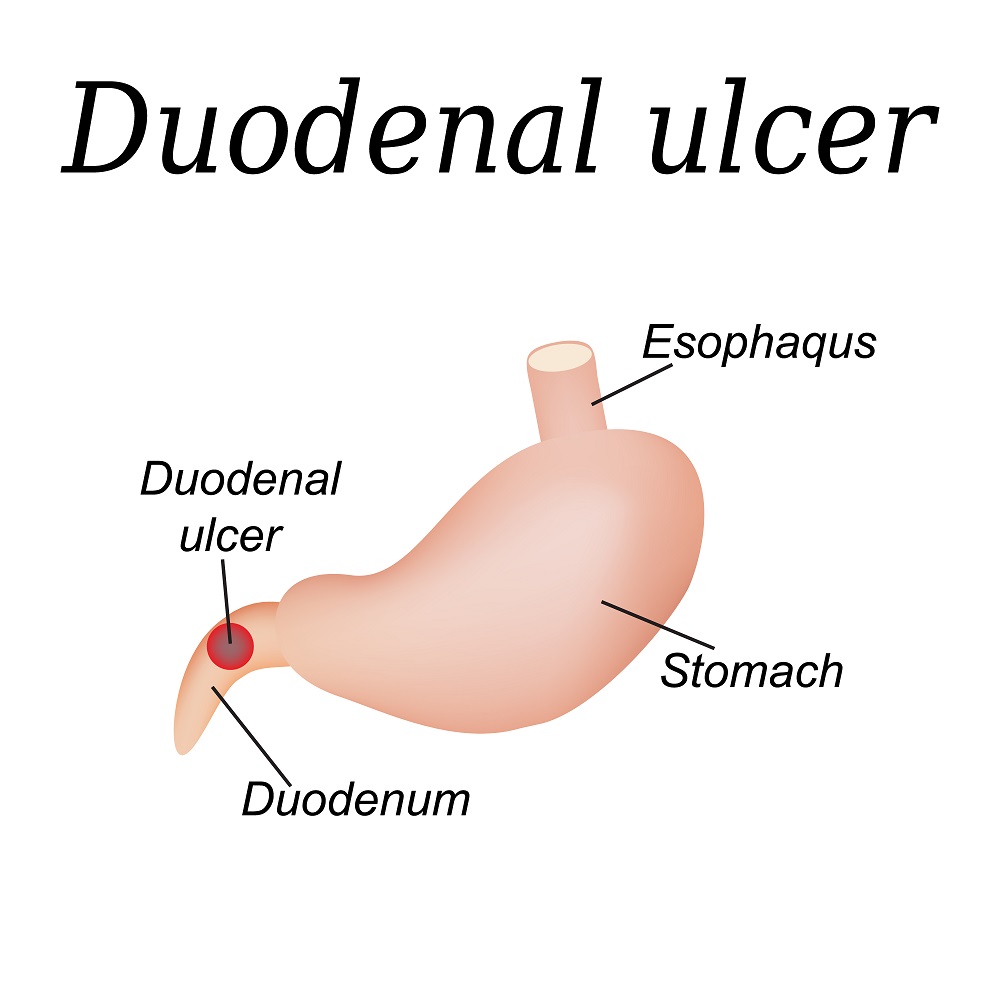The symptoms caused by duodenal ulcer are not very specific and can also occur in other diseases of the gastrointestinal tract.
Some affected people have no symptoms at all, others suffer from:
- Pain, pressure and a sense of fullness in the upper abdomen
- Eructation
- Flatulence
- Nausea
- Retching
- Vomiting
- Absence of appetite
The most common cause of duodenal ulcer is an increased secretion of gastric juice. In addition, infections with the bacterium H. pylori also play a significant role in the development of those ulcers. But not all people with this bacterium get duodenal or gastric ulcer. The reasons for that have not yet been completely clarified.
The following risk factors can also lead to duodenal ulcers:
- Circulatory disorders
- Physical and psychological stress
- Severe illness (e.g. tumor, Zollinger-Ellison syndrome) – seldom
- Overuse of alcohol
- Overuse of tobacco
- Certain medication, e.g. aspirin and nonsteroidal anti-inflammatory drugs
- Blood group 0 (but the causes have not yet been completely understood )
- Hereditary factors
Serious complications can occur in some patients with duodenal ulcer, e.g.:
- Life-threatening bleeding of the ulcer
- Perforation of the duodenum’s wall caused by the ulcer: When food and acid leak into the abdominal cavity the patient suffers a lot and has to go to hospital immediately. This condition can also lead to peritonitis.
Acid-suppressing medicine against duodenal ulcers is supposed to inhibit the production of gastric acid. But the patients should also change their life style and diet in order to support the medical treatment, e.g. by avoiding stress, eating easily digestible food. Since almost all duodenal ulcers are caused by infection with H. pylori, it is important to clear it with antibiotics. If the infection is not gone completely, the ulcer can return once the patient stops taking acid-suppressing medication. Physicians recommend a “triple therapy” for a week (two antibiotics and the acid-suppressing medication that allows the antibiotics to work well).
If the duodenal ulcer was caused by anti-inflammatory medication, it is advisable to stop it so that the ulcer can heal. Therefore, the patients have to use acid-suppressing medicine. Only after various unsuccessful treatments or in case of complications (bleeding, peritonitis, etc.) the affected person needs surgery. More than 90 out of 100 patients with duodenal ulcers respond to the therapy and get healed successfully. But after a certain time, the ulcer can come back again. However, with the right preventive measures, the risk of relapses can be minimized.
Preventive measures
- Prevention of stress
- Autogenic training
- Progressive muscle relaxation
- Walks
- Sports (jogging, cycling, swimming)
- Balanced diet
- No food and drinks that cause discomfort
- Cutting down on alcohol, nicotine, hot spices, fat


